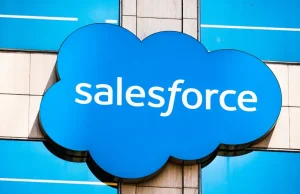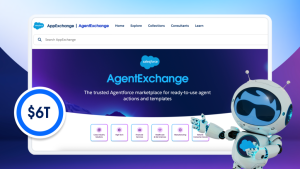In a major stride toward AI-native enterprise operations, Salesforce has unveiled Agentforce 3, a next-generation update to its flagship digital labor platform. Built to support the hybrid workforce—where humans and AI agents collaborate—Agentforce 3 brings a robust command center, deep integration capabilities, enhanced performance, and prebuilt use cases across industries.
 The release follows widespread adoption of Agentforce since its debut in late 2024 and reflects feedback from thousands of real-world deployments. “Agentforce 3 is built to manage, measure and optimize AI agents deployed in a new hybrid workforce,” said Adam Evans, EVP & GM of Salesforce AI.
The release follows widespread adoption of Agentforce since its debut in late 2024 and reflects feedback from thousands of real-world deployments. “Agentforce 3 is built to manage, measure and optimize AI agents deployed in a new hybrid workforce,” said Adam Evans, EVP & GM of Salesforce AI.
A Command Center for Real-Time AI Agent Oversight
At the heart of the upgrade is the Agentforce Command Center—a real-time observability dashboard integrated into Agentforce Studio. It tracks metrics like agent adoption, resolution rates, feedback scores, and operational cost. With OpenTelemetry integration, it seamlessly connects with platforms like Datadog, Splunk, and Wayfound.
The result? Clear visibility into performance bottlenecks and faster iteration cycles. During the 2025 tax season, 1-800Accountant reported that Agentforce autonomously resolved 70% of chat queries, with the command center enabling weekly configuration refinements.
Interoperability Through MCP and MuleSoft
Agentforce 3 now supports the Model Context Protocol (MCP), a key enabler for AI-to-application communication. Enterprises can easily expose APIs using MuleSoft, while Heroku supports rapid MCP server deployment. This ensures secure, standards-based connectivity between AI agents and third-party systems without complex custom integrations.
“Salesforce’s open ecosystem approach, especially through its native support for open standards like MCP, will be instrumental in helping us scale,” said Mollie Bodensteiner, SVP of Operations at Engine.
 Expanded AgentExchange Ecosystem and Prebuilt Use Cases
Expanded AgentExchange Ecosystem and Prebuilt Use Cases
Agentforce 3 also expands AgentExchange, a marketplace of plug-and-play AI tools and MCP servers from partners like AWS, Stripe, Google Cloud, PayPal, Notion, and WRITER. New use cases include:
- AWS: Dataset extraction via Amazon Bedrock
- Stripe & PayPal: Subscription management and refunds
- Box: Contract retrieval and summarization via Slack
- Google Cloud: Integration with Veo, Imagen, Lyria, and Google Maps
Healthcare systems like UChicago Medicine are already using Agentforce to automate routine patient service interactions, freeing human staff for more complex care delivery.
“With Agentforce, PepsiCo is taking a significant step forward in our agentic journey. By unifying our insights through Salesforce Data Cloud, we’re gaining a holistic view of our customers and operations. This visibility enables us to continue to act strategically, strengthen engagement, and drive greater value across every market we serve,” said Athina Kanioura, Chief Strategy and Transformation Officer, PepsiCo.
Performance, Localization, and Compliance
Agentforce 3 builds on the Atlas architecture, delivering 50% lower latency, real-time response streaming, and model failover across LLM providers. Inline citations and web search grounding enhance output reliability.
Salesforce now supports local data processing in India, Japan, Brazil, Canada, and the UK, with FedRAMP High certification unlocking deployment in U.S. government environments. Language support has expanded to six major languages, with more on the way.
Pricing and Partner Ecosystem
To ease adoption, Agentforce 3 introduces per-user pricing across Sales, Service, and Industry Cloud—allowing unlimited internal use of agents. It also includes 200+ prebuilt actions tailored to industries like healthcare, manufacturing, media, and financial services.
To support rollouts, Salesforce is partnering with Accenture, Deloitte Digital, PwC, and NeuraFlash, and now boasts over 272,000 certified agentic professionals worldwide.




